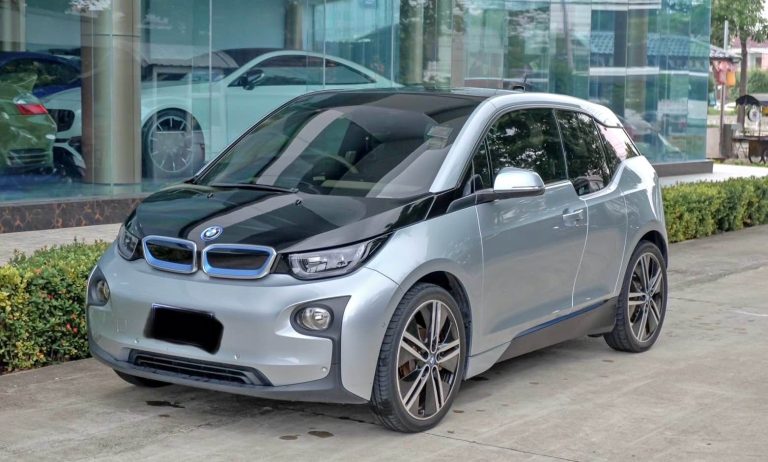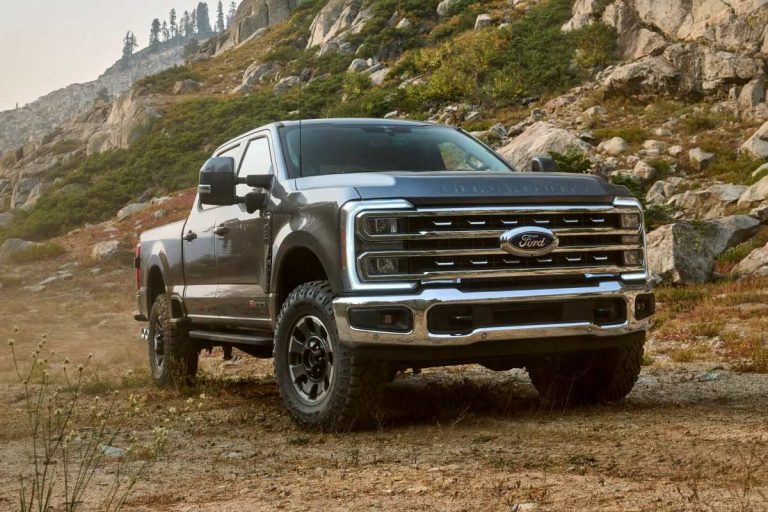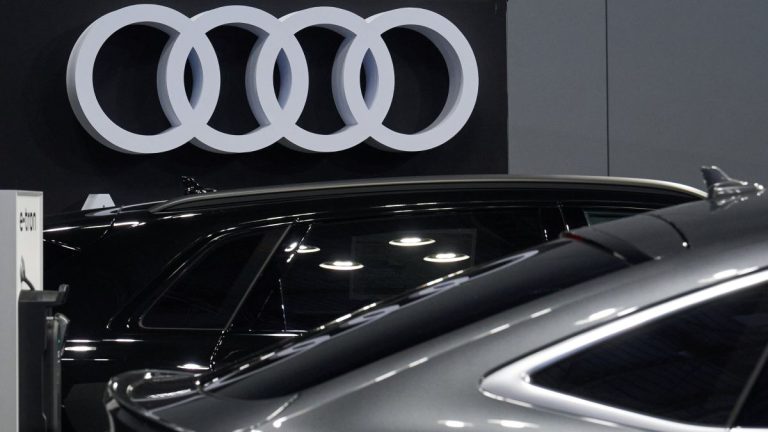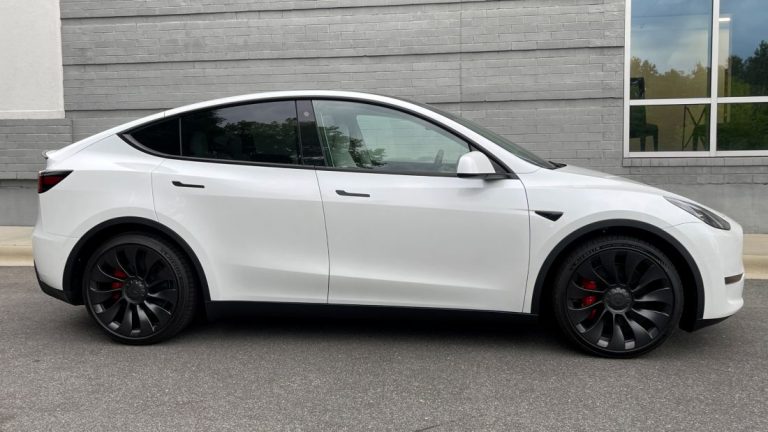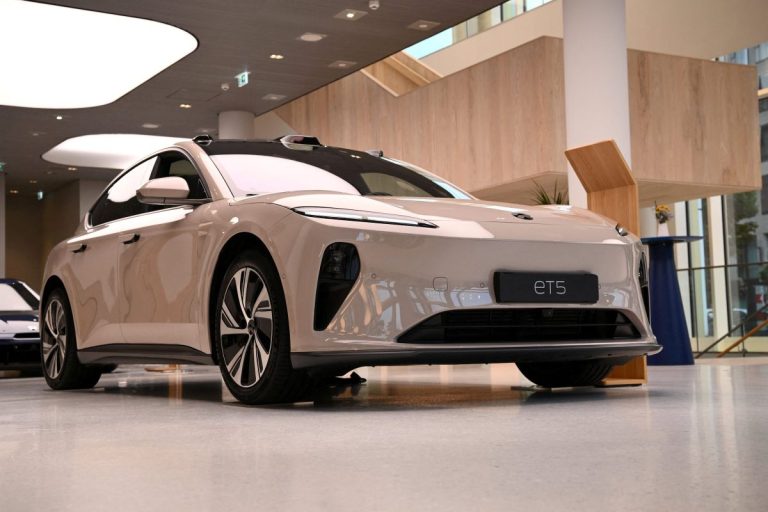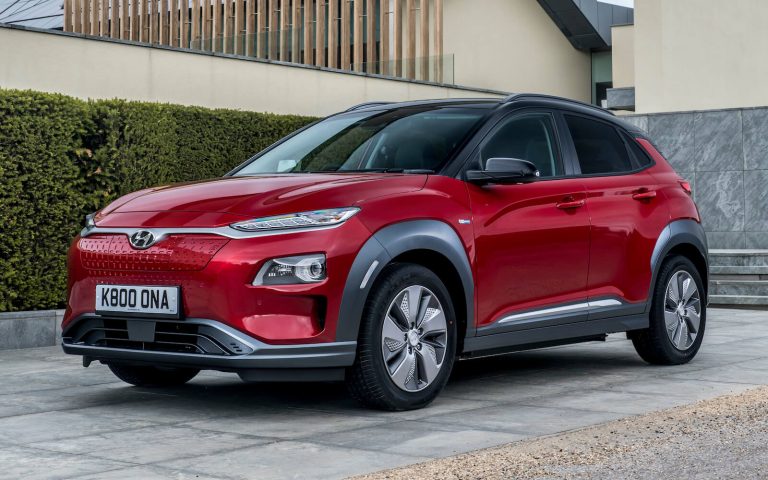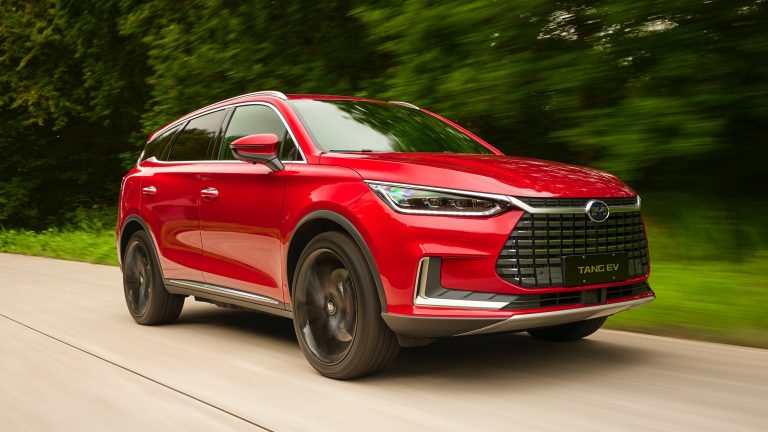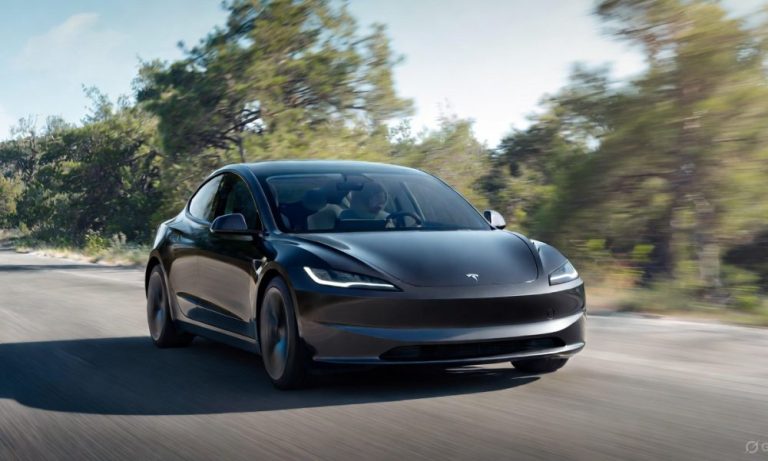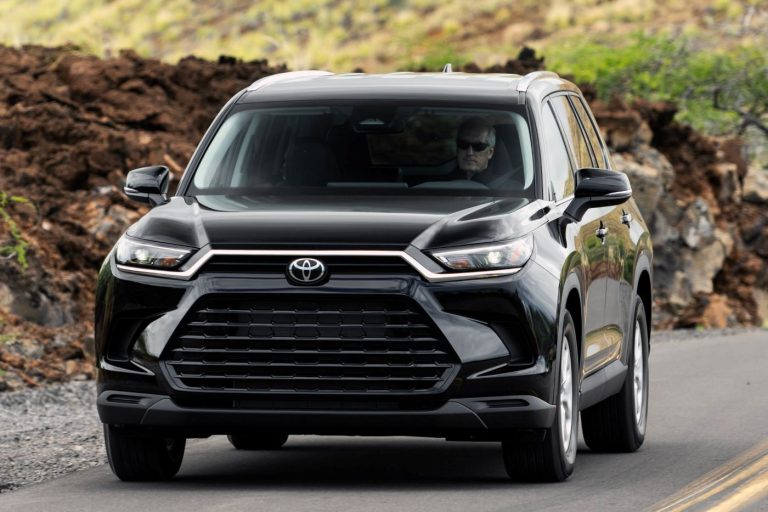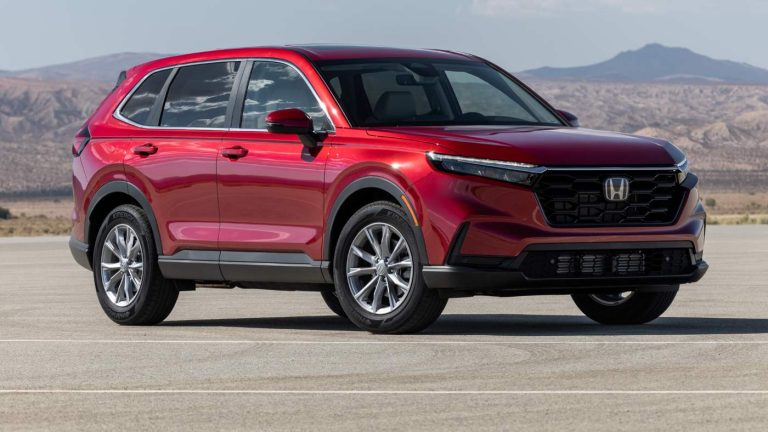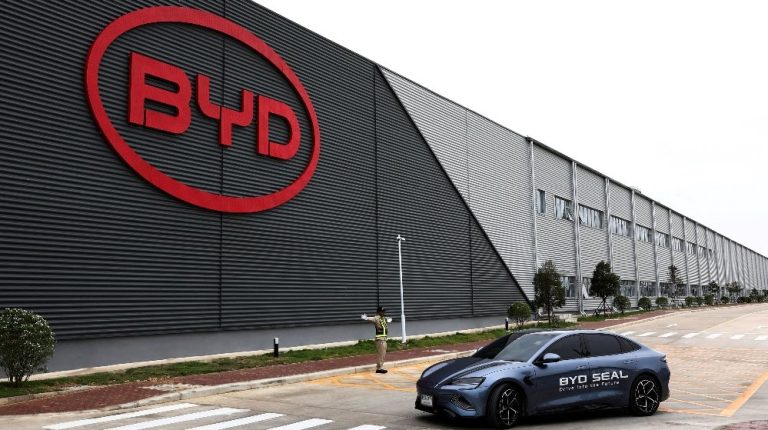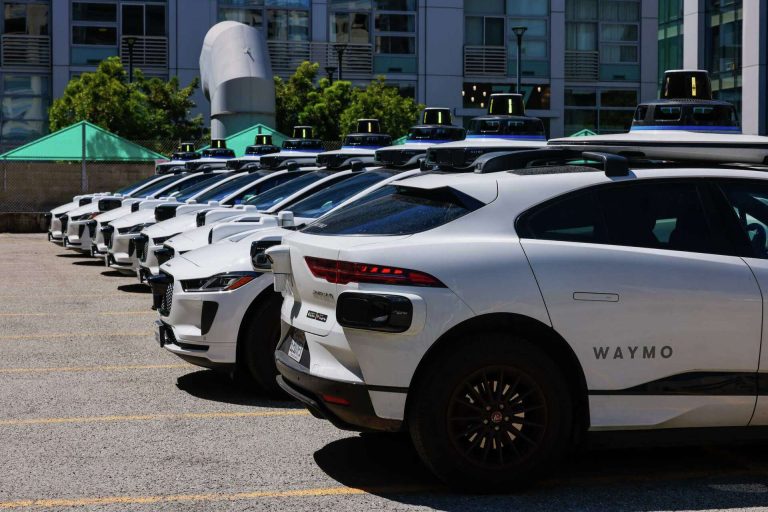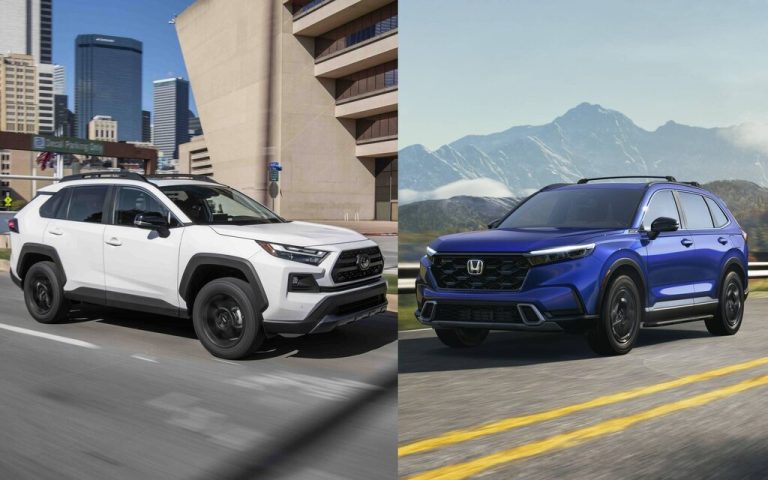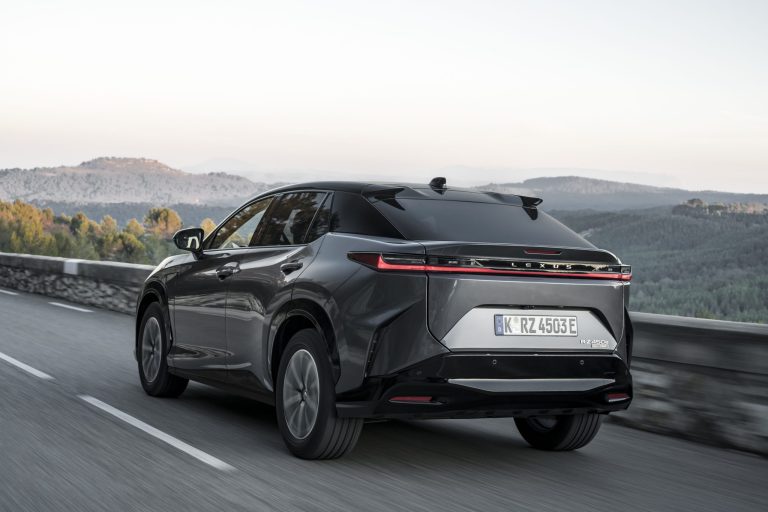BMW has taken a major step toward launching its next-generation electric sedan, confirming that the all-new BMW i3 has entered pre-series production at the company’s Munich plant. This milestone means the long-rumored electric 3-Series is…
Category: News
Renault Chooses Cheaper Chinese EV Motors as Europe Demand Slows
Renault is moving to further integrate Chinese technology into its electric vehicle supply chain, announcing plans to assemble a new small EV motor in France using components sourced from China. The decision underlines how cost…
Toyota Moves to Expand Hybrid Output as EV Growth Slows
Toyota is doubling down on the strategy that has already made it the undisputed leader in hybrid electric vehicles, outlining plans to significantly scale up hybrid and plug-in hybrid production over the next several years.…
Volkswagen and Toyota Overtake Tesla in Norway’s EV Market
Tesla’s grip on the European electric vehicle market has been weakening for some time, but the scale of its latest stumble in one of its most faithful territories has taken many by surprise. Long seen…
Hennessey Turns the Ford F-250 Into a 37-Inch-Tire Off-Road Monster
Hennessey has never been subtle about its approach to performance trucks, and its latest creation is a very American kind of statement piece. To celebrate 250 years of American independence, the Texas-based tuner has unveiled…
Audi CEO Says Renaming the Lineup Was a Mistake After Electrification
Audi has acknowledged that a recent attempt to overhaul its vehicle naming strategy backfired, leaving customers confused and the brand scrambling to undo the damage. While the company has also been dealing with softer sales…
Tesla’s New Model Y AWD Brings Dual-Motor Power for Just $2,000 More
Tesla has addressed one of the biggest complaints about the Model Y lineup by introducing a new, more affordable all-wheel-drive variant in the United States. Priced at $41,990, the new Model Y All-Wheel Drive significantly…
Sentra SE RS Brings Nismo Attitude to Nissan’s Compact Sedan
A Nissan enthusiast and dealership salesman has turned a bold idea into a real, showroom-ready car, creating what might be the most aggressive-looking Sentra ever offered, at least unofficially. Dubbed the Sentra SE RS, this…
Corvette Grand Sport Set to Return for 2027 With Retro-Inspired Design
Chevrolet looks ready to revive one of the most beloved names in Corvette history, with the Grand Sport set to return for the 2027 model year in a way that leans heavily into nostalgia while…
China Forces EV Makers to Rethink Door Design With New Safety Rules
China has officially moved to ban a once-trendy electric vehicle design feature, becoming the first country in the world to do so. Beginning in 2027, electric vehicles sold in China will no longer be allowed…
Hyundai Kona Electric Qualifies for £1,500 UK Government EV Grant
Hyundai has confirmed that the Hyundai Kona Electric now qualifies for the UK Government’s Band 2 £1,500 Electric Car Grant (ECG), making it the first Hyundai model to be approved under the scheme. The eligibility…
China’s Auto Market Faces Reality Check as BYD Growth Stalls
BYD’s sales slump deepened in January, with the company reporting its fifth straight month of year-on-year declines as demand in its home market remained under pressure. The automaker sold 210,051 new energy vehicles (NEVs) globally…
Tesla Details Why Fewer Seats Could Mean More Robotaxi Profit
Tesla is framing its robotaxi plans not around a single futuristic vehicle, but as a complete fleet-based operating model. The company argues that success in autonomous ride-hailing will be driven by revenue per paid mile…
Toyota Targets Family Buyers With New Three-Row Electric SUV
Toyota is preparing to fill one of the few remaining gaps in its U.S. lineup with the introduction of its first three-row electric SUV, a model positioned directly against rivals like the Hyundai Ioniq 9…
Honda Shows How Vehicle Sensors Could Improve Road Safety
Honda is exploring a new way to make America’s roads safer by using sensors that already exist in modern vehicles to detect potholes and other infrastructure damage before drivers encounter them. While vision and LiDAR…
BYD Sales Slide Highlights Broader China Auto Weakness
BYD’s sales slump deepened in January, with the company reporting its fifth straight month of year-on-year declines as demand in its home market remained under pressure. The automaker sold 210,051 new energy vehicles (NEVs) globally…
Waymo’s US$110bn Valuation Signals Investor Faith in Robotaxis
Waymo is in the process of closing a US$16 billion funding round that will lift its valuation to a record US$110 billion, more than doubling the worth of Google’s self-driving car business. The raise underscores…
Bentley GT S Adds Edge Without Losing Its Grand Touring Soul
Bentley has brought the Bentley Continental GT S back to its lineup, but this time without any increase in power over the standard Continental GT. Instead, the focus is firmly on delivering a more engaging…
Updated Mercedes-Benz S-Class Debuts in UK With New Suspension and Interior Tech
Mercedes-Benz has revealed a substantially updated version of its flagship S-Class, which is scheduled to go on sale later this year. The refresh is extensive, with more than 2,700 newly developed components introduced, representing over…
Audi RS5 Combines Twin-Turbo V6 With Plug-In Hybrid Tech In An Unexpected Leak
A brief misstep by Audi appears to have revealed crucial details about the next-generation Audi RS5 ahead of its official reveal, pointing to a significant mechanical shift for the high-performance model. The slip suggests the…
Top 10 Affordable JDM Cars That Still Deliver Big Value
Japanese Domestic Market (JDM) cars have cultivated a legendary reputation among automotive enthusiasts worldwide, representing a perfect blend of reliability, performance, and innovative engineering. These vehicles, originally manufactured for the Japanese market, have transcended borders…
Dealers Say Ford Is Losing Buyers to Honda and Toyota Calling For Better Pricing
At first glance, Ford doesn’t look like a brand desperate for new products. The automaker sold more than 2.2 million vehicles in the United States last year, marking a 6% increase, and its trucks and…
Lexus Delivers Record 2025 Sales While German Rivals Decline
While several luxury automakers wrestled with slowing momentum last year, Lexus moved in the opposite direction, posting its strongest global sales performance to date. Unlike rivals such as BMW, Mercedes-Benz, and Audi, the Japanese luxury…
Tesla Robotaxi Data Highlights Gap Between Autonomy and Human Driving
In one incident, one of Tesla’s Robotaxi vehicles struck a cyclist, even though a safety driver was seated in the front passenger seat. As many observers anticipated, Tesla’s Robotaxi program has not expanded at the…
Nvidia to Supply Autonomous Driving Platform for Mercedes-Benz S-Class Robotaxis
Nvidia will provide its DRIVE Hyperion architecture and DRIVE AV software to support Level 4 autonomy in the Mercedes-Benz S-Class robotaxi program. Nvidia announced it will supply its Drive Hyperion hardware platform along with its…

